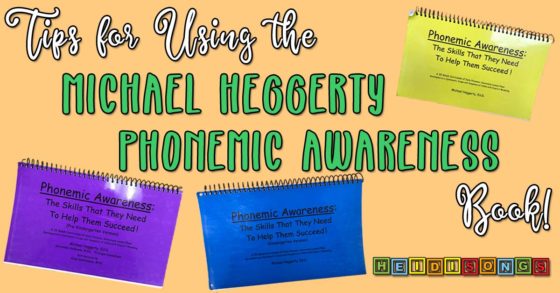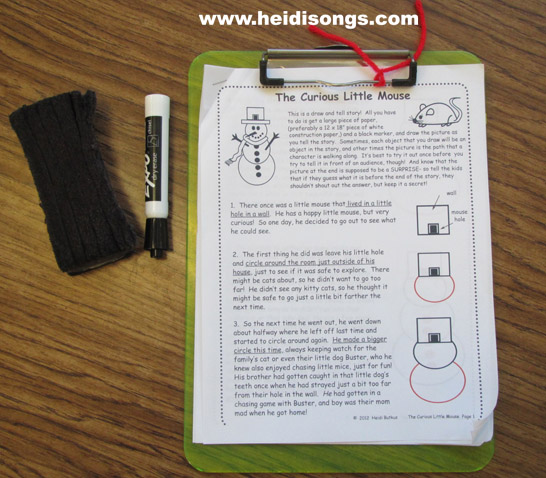A Kindergarten Pacing Guide for the Common Core- Freebie!
Have you heard the news? We've Moved to HeidiSongs.tv!
Our new website features an online video streaming service, updated blog posts at Heidisongs.blog, and a wealth of fresh resources designed to make learning even more fun and engaging.
You can also continue shopping for our educational products there and at our Teachers Pay Teachers store!
Head over to HeidiSongs.tv now and explore all the exciting new features.
See you there!
__________________________________________________________________________
Do you have a Kindergarten Pacing Guide to help you plan out your school year? If not, I have a free one for you right here! You know, they say that if you don't know where you are going, you will probably end up somewhere else. I think that this is more true of teaching than anything else! Planning out the day, the week, the month, and the year is essential to success. A good pacing guide can help you plan out your instruction, whether or not you are familiar with the curriculum or not.
 |
The Pacing Guide tells you which concepts, numbers, words, or shapes to work on each week. |
Becoming familiar with what is to be taught and planning for it is the biggest problem with being a new teacher. It is also the hardest thing about getting moved from one grade level to another. It is like trying to drive through a foreign country without a map, or trying to cook up some dinner without having any idea what you would like to serve! It doesn't work very well. Of course, you can start reading your teachers manuals... if you are like most teachers, there may be a dozen volumes for language arts alone, never mind math, science, and social studies! So start reading!
When I was a fairly new teacher, I worked as the afternoon Kindergarten teacher, following the lead of the more experienced morning kindergarten teacher. We shared a classroom and team taught, with the same lesson plans in the morning as in the afternoon. So in order to plan better, my team mate developed a pacing guide that we both followed. It was extremely basic, and had only the most minimal curricular items on it. However, we kept it pinned on the wall above our desk and referred back to it each year.
A pacing guide is essential because it can help you to remember which words, numbers, letters, colors, or concepts that you need to teach each week. If you write your pacing guide carefully, it makes planning instruction very easy. This is because if you just stick to the plan on the guide, you will not accidentally leave anything out or get behind on any vital skills. On mine, I made sure that I left enough time to teach and practice all of the concepts that we were going to test on, and that we would do this well in advance of testing time. So, my pacing guide is aligned to my district's testing schedule. Once I had this plan in place, I could allow myself to relax.
Fast forward many years later, and my wonderful mentor teacher tragically passed away due to a rare form of untreatable ovarian cancer, which spread quickly throughout her whole body and brain... and she was dead less than one year after diagnosis. It was terribly sad and hard to go on working in the same room that we had shared for ten whole years, but somehow, I dragged myself through it and came through on the other side. But that's another story for another day!
The lessons my dear friend taught me have stayed with me forever, and I have spent the last four or five years refining them and passing many of them on to you! It makes me happy to think that she is proud of me and my accomplishments now! And one of these lessons is how to pace out the year with a homemade Pacing Guide that I now create in Excel, but publish here in pdf form. You can easily make your own by using Microsoft Excel. It really isn't hard; just start typing in the boxes! Take all of the things that your students must learn, and spread them out over the school year, leaving enough time for review and testing. If you are not sure how long it takes to test, as a teacher at your school. But I usually leave about (gasp!) SIX WEEKS of time available to do some testing at the end of the second trimester because there is so much to test at that time of year in my district in Kindergarten. I only need about three weeks lead time for the November report card, and about four weeks of lead time for the end of the year report card. I also try to (at least) introduce just about everything that I can by the end of the second trimester, because there are always lots of high kids that can master every single thing by then. This gives them a chance to have an absolutely BEAUTIFUL report card! And that makes me look great, too! But if I don't even introduce these harder concepts, then I can't test anyone on them, and that's that.
 |
This is what the free downloadable Pacing Guide looks like. |
My Pacing Guide has grown with the curricular requirements each year, and as I have added things to it, I have updated it and continued to post it on our website on the Free Downloads page. The Pacing Guide that is attached was updated last August to reflect the Common Core State Standards. I am writing this post now to let our new readers know that it is available.
You will find it by clicking on this link here and then scrolling down to the second section and then clicking on Pacing Guide. I hope it is helpful to you!
----------------------------------
Follow me! Did you enjoy this post? Do me a favor and share it with your friends! And follow this blog by signing up for my email updates here, or follow on Bloglovin', or follow me on TPT! I'm also on Pinterest, Facebook, Twitter, Instagram, Google+ and YouTube, too! Don't forget to sign up for our email newsletter for special deals and promo codes that you won't find out about anywhere else.











